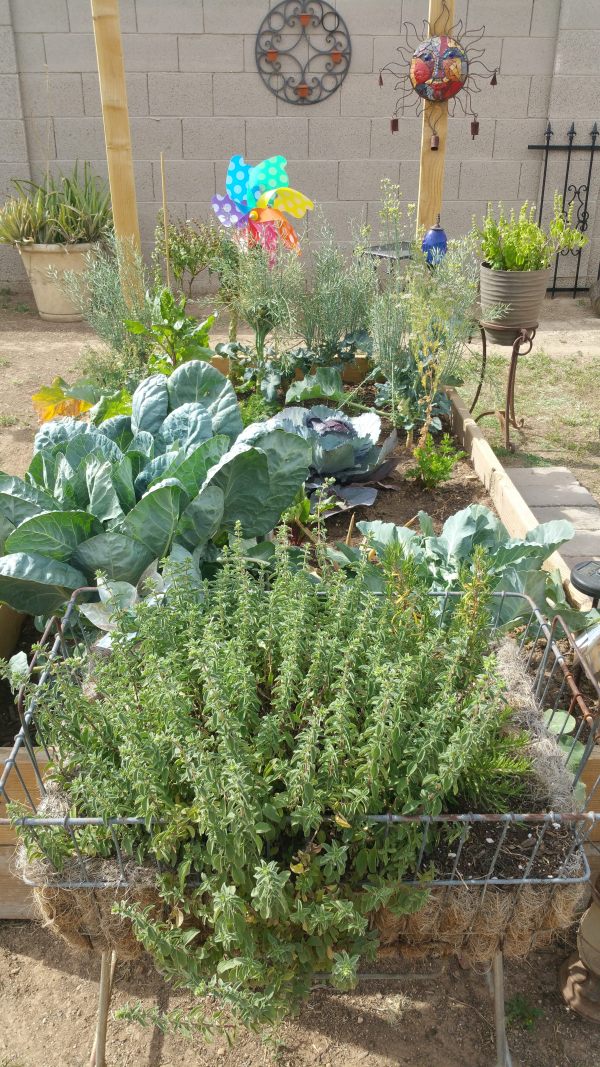Sustainable Gardening
With careful planning, even the low desert can provide fresh vegetables during the summer. A bit of shade and adequate watering are key to keeping both humans and heat-resistant plants going strong.
Why You Should Establish a ‘Serious’ or Sustainable Garden
During World War II, a victory garden was found in almost every back yard. Even city dwellers tended flower pots on their windowsills and fire escapes. It was considered patriotic to reduce the strain on food supplies and to be prepared. At the first sign of almost any public emergency, the public’s first panic response is focused on how they will keep food on the table.
An abundant garden won’t fill every necessity of what we consider routine daily life. However, it can create enough food to take the strain off the regular grocery budget, and produce vegetables that can be frozen or canned for off-season or emergency use.
But here’s the best part of gardening. While you are busy growing food that’s good for the body, you are also nourishing your mental health — and your soul.
Suggestions for Launching a Successful Garden
1. Plan ahead. Figure out what kind of time you will need to set up and plant, what plants you want to g grow and how long the plants you select will need to grow, and when you can harvest them. Also consider where you will store what you will harvest. You will also need to decide what equipment will be required, and where you will store it to make it last.
2. Money is a necessary part of the discussion. Make purchasing decisions based on your actual budget, and buy supplies based on need, and not on want. Buy necessities as you go along, and as you determine what you truly will use.
Remember to recycle, repurpose, and reuse items. Egg cartons can be used to sprout seeds. Old spray bottles can be washed out and used to spritz seedlings. An old tee-shirt can be cut into strips and used to tie up vines or tomato plants.
3. Be patient. A sustainable garden takes time and thoughtful attention to be established. But the rewards are worth every moment spent outside helping plants grow.

Get In Touch
or Let's Meet
But first, please fill out this Consultation Questionaire
Click to fill out Consultation Survey.
(602) 622-5547
vegupgetdirty@gmail.com
